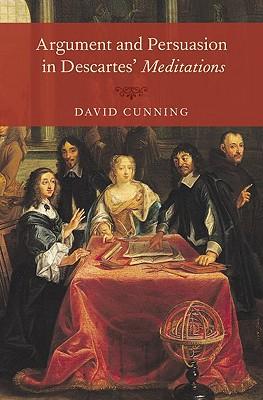Overview
Descartes' Meditations on First Philosophy has proven to be not only one of the canonical texts of Western philosophy, but also the site of a great deal of interpretive activity in scholarship on the history of early modern philosophy over the last two decades. David Cunning's monograph proposes a new interpretation, which is that from beginning to end the reasoning of the Meditations is the first-person reasoning of a thinker who starts from a confused non-Cartesian paradigm and moves slowly and awkwardly toward a grasp of just a few of the central theses of Descartes' system. The meditator of the Meditations is not a full-blown Cartesian at the start or middle or even the end of inquiry, and accordingly the Meditations is riddled with confusions throughout. Cunning argues that Descartes is trying to capture the kind of reasoning that a non-Cartesian would have to engage in to make the relevant epistemic progress, and that the Meditations rhetorically models that reasoning. He proposes that Descartes is reflecting on what happens in philosophical inquiry: we are unclear about something, we roam about using our existing concepts and intuitions, we abandon or revise some of these, and then eventually we come to see a result as clear that we did not see as clear before. Thus Cunning's fundamental insight is that Descartes is a teacher, and the reader a student. With that reading in mind, a significant number of the interpretive problems that arise in the Descartes literature dissolve when we make a distinction between the Cartesian and non-Cartesian elements of the Meditations, and a better understanding of surrounding texts is achieved as well. This important volume will be of great interest to scholars of early modern philosophy.
Full Product Details
Author: David Cunning (Associate Professor of Philosophy, Associate Professor of Philosophy, University of Iowa)
Publisher: Oxford University Press Inc
Imprint: Oxford University Press Inc
Dimensions:
Width: 23.60cm
, Height: 1.80cm
, Length: 15.50cm
Weight: 0.499kg
ISBN: 9780195399608
ISBN 10: 0195399609
Pages: 248
Publication Date: 19 August 2010
Audience:
Professional and scholarly
,
Professional & Vocational
Format: Hardback
Publisher's Status: Active
Availability: In Print

This item will be ordered in for you from one of our suppliers. Upon receipt, we will promptly dispatch it out to you. For in store availability, please contact us.
Reviews
<br> David Cunning's Arguments and Persuasion in Descartes' Meditations is an ambitious book, offering interpretations of and solutions to a wide range of interpretive issues in the Meditations. This is a fascinating book. --Philosophy in Review<p><br> Those who construe Descartes' philosophy as resting on iconoclastic notions of intellectual autonomy, mastery of natures and a sense of independence bordering on solipsism will need to rethink as a result of this book. The passive acceptance of God/Nature is of course very different from the acceptance of authority, dogma, textual traditions, precedents and history, and the great virtue of the book is that it brings out this distinction so clearly. I much recommend this worthwhile and original book. --Notre Dame Philosophical Reviews<p><br> Scholars and graduate students of Descartes will find the exercise of working through this book challenging and illuminating. Recommended. --CHOICE<p><br>
scholars and graduate students of Descartes will find the exercise of working through this book challenging and illuminating. CHOICE
scholars and graduate students of Descartes will find the exercise of working through this book challenging and illuminating. * CHOICE * One might have thought it mearly impossible at this late date to write a new book containing a well argued, fresh perspective on fundamental features of Descarte's philosophy. With this book, David Cunning has achieved that nearly impossible feat. The accomplishment is especially remarkable give his focus on the Meditations, which is one of the most thoroughly studied works of philosophy in existance. * Alan Nelson, Mind *
<br> Those who construe Descartes' philosophy as resting on iconoclastic notions of intellectual autonomy, mastery of natures and a sense of independence bordering on solipsism will need to rethink as a result of this book. The passive acceptance of God/Nature is of course very different from the acceptance of authority, dogma, textual traditions, precedents and history, and the great virtue of the book is that it brings out this distinction so clearly. I much recommend this worthwhile and original book. --Notre Dame Philosophical Reviews<br>
Author Information
David Cunning is Associate Professor of Philosophy at the University of Iowa.




